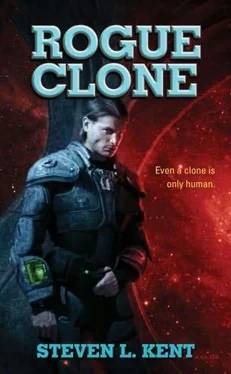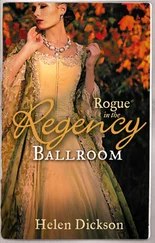Steven Kent - Rogue Clone
Здесь есть возможность читать онлайн «Steven Kent - Rogue Clone» весь текст электронной книги совершенно бесплатно (целиком полную версию без сокращений). В некоторых случаях можно слушать аудио, скачать через торрент в формате fb2 и присутствует краткое содержание. Жанр: Боевая фантастика, на английском языке. Описание произведения, (предисловие) а так же отзывы посетителей доступны на портале библиотеки ЛибКат.
- Название:Rogue Clone
- Автор:
- Жанр:
- Год:неизвестен
- ISBN:нет данных
- Рейтинг книги:3 / 5. Голосов: 1
-
Избранное:Добавить в избранное
- Отзывы:
-
Ваша оценка:
- 60
- 1
- 2
- 3
- 4
- 5
Rogue Clone: краткое содержание, описание и аннотация
Предлагаем к чтению аннотацию, описание, краткое содержание или предисловие (зависит от того, что написал сам автор книги «Rogue Clone»). Если вы не нашли необходимую информацию о книге — напишите в комментариях, мы постараемся отыскать её.
Rogue Clone — читать онлайн бесплатно полную книгу (весь текст) целиком
Ниже представлен текст книги, разбитый по страницам. Система сохранения места последней прочитанной страницы, позволяет с удобством читать онлайн бесплатно книгу «Rogue Clone», без необходимости каждый раз заново искать на чём Вы остановились. Поставьте закладку, и сможете в любой момент перейти на страницу, на которой закончили чтение.
Интервал:
Закладка:
“Prepare for broadcast,” the pilot said over the loud speaker.
And then the first 10,000-light-year jump was over. We had traveled sixty trillion miles in less than one second. We traveled the remaining one hundred eighty trillion miles in the next few minutes—the time it took to emerge from a receiving disc and glide to the broadcast disc beside it. The transfers took approximately thirty seconds and we made four of them.
Clearing Mars security, however, was a different story. The Unified Authority was at war and Mars was its most important port. Mars was the gateway to Earth.
Mars Spaceport was the galaxy’s largest shopping mall. It was the hub of all space flight to and from Earth. Consequently, anybody on the planet qualified for duty-free shopping. Even the Mars port employees qualified. The jewelry stores on Mars sold more diamonds than jewelers on the next ten richest planets combined. As the advertisements said, “Serious shoppers shop on Mars.” Even people who were not planning on traveling sometimes flew to Mars for the tax breaks on gems, fine liquors, and other luxury items.
Fluorescent light poured out of the storefronts. Pretty girls in short skirts stood just outside stores offering to mist passersby with samples of expensive perfumes. A robotic cigar store Indian turned back and forth proffering plastic cigars to all who passed. The shopping arcade I had entered stretched as far as the eye could see, and there were ten more like it.
Nearly one million people flew in and out of Mars on any given day. The planet did not have a breathable atmosphere, just a series of domes with a city-sized spaceport and a military base that was jointly run by the Air Force and the Army.
I did not like going to Mars. I came here because it was the most crowded spot in the galaxy, and the best jumping point for meeting Admiral Klyber. The traffic around this planet was so congested that no one paid undue attention when ships took off and headed out to space, and Klyber’s pilots could meet me here and smuggle me away without attracting attention.
I scanned the crowd around me for known Confederates and Mogats. Having just survived a terrorist attack on New Columbia I was more cautious than ever. I also kept an eye out for people who might identify me as a Liberator—or even worse, recognize me.
“You ready to go, Marsten?” a man asked as I passed the door of a dimly-lit bar.
The pilot knew my real name. He also knew better than to refer to me as Wayson in public.
“Sure,” I said, not even pausing to look back.
The pilot walked quickly and caught up with me. Dressed in a long leather jacket and khaki pants, he wore the traditional uniform of civilian pilots. His short black hair was slicked back and a pair of dark aviator glasses poked out of his shirt pocket. He was not a civilian. He was an officer in the Navy.
We left the shopping arcade and entered a food court. Lines of people formed in front of small restaurants. Janitors bussed tables and cleared trash bins. Loud talk echoed in the rafters of this cavernous hall with its bright lights and gleaming white floors.
“You are the hot topic on the ship these days,” the pilot said. “Is it true?”
“Is what true?” I asked.
“Were you in Safe Harbor when the bombs went off?”
“Where did you hear that?” I asked.
“One of my friends heard Klyber say you were there.”
“If Admiral Klyber says I was there, I must have been there,” I said.
The pilot laughed. We crossed the food court and entered an unmarked door. This led us into a narrow service hall that seemed to stretch for miles. The white tile floor gleamed but the walls were unfinished plaster. Bright fluorescent fixtures provided the hall with dry luminescence.
“So were you there when the bombs went off?”
“Yeah, I was there. I helped dig out a few of the survivors.”
The service hall branched off to two different sections of the Mars Spaceport. We entered from one of the bustling commercial terminals. Had we headed left, we would have entered administrative offices. We turned right and wound up in the commuter terminal. This was the area used by private pilots and large corporations. It was smaller than the commercial terminals, far less crowded, and much less flashy. Instead of a large food court, it had a coffee shop where pilots went to relax as they filled out flight reports or studied their flight plans. The general mood in the commuter terminal was quiet, like the lobby of a library.
A couple dozen pilots stood in pockets scattered around the floor of the terminal. Most of these flyboys seemed to know each other. None of them recognized my pilot. They stole mildly curious glances. His was a new face that had stumbled into their tight-knit fraternity.
Once we left the terminal, my pilot swapped his camouflage—the leather jacket and civilian accoutrements—for a Navy jacket. His spacecraft, however, remained camouflaged.
We crossed the tarmac and climbed into a Johnston R-27, the kind of twelve-seater light craft favored by small corporations. The Johnston was white with dark gray trim along its wings. It had neither armor nor hidden gun arrays, the prosaic sign of a military craft. This innocuous Johnston had something far more impressive.
“You strapped in?” the pilot asked as I fitted the last of the safety harness across my chest, a useless gesture. Any accidents in this little craft would end in death.
“This is Johnston R-twenty-seven zero four, four, nine Rectal, Anus, Penile five requesting permission to taxi. Again, this is Johnston zero, four, four, nine RAP five requesting permission.”
“Roger, Johnston R-twenty-seven. You are cleared to taxi.” I could hear other flight controllers squawking in the background as the man on the radio struggled to keep from laughing.
“Aren’t there regulations about what you can say on the air?” I asked.
“To the tower?” the pilot asked, sounding genuinely surprised. “The controllers love it when I talk dirty. It’s their supervisors who get pissed, and that’s all right. They can’t touch me. I have military clearance and they’re just civilians.”
The commuter runway was a mile-long tunnel with several airlocks. A crewman towed us to the first airlock using a cart. When he reached the far wall of the airlock, the crewman detached our tow cable, gave us a quick wave, and drove back to the terminal. The runway behind us vanished as the thirty-foot door closed behind us, sealing in the spaceport’s manufactured atmosphere.
The wall in front of us was thick and heavy, the color of oxidized iron. After two minutes, a seam showed in the center of this great metal barrier. The cogs at the base and top of the wall groaned as they pulled it open along their zipper-like causeway.
This time we rolled forward under our own power and stopped just shy of a final barrier, an electroshield. The first two barriers we passed through protected the atmosphere inside the spaceport. This next shield was in place for military purposes. It was a force field designed to stop intruders and deflect attacks. The electroshield could dampen particle beam and laser attacks, and anything solid that hit the shield would be instantly fried. I could see the surface of Mars ahead through the electroshield’s translucent white aurora.
“Do they know you’re self-broadcasting?” I asked.
Having a “self-broadcasting” ship meant that this highly modified Johnston R-27 did not need to enter the Broadcast Network to travel long distances. The ship was equipped with its own broadcast engine that, used in conjunction with the right navigational computer, could transport the ship anywhere in the galaxy.
“It’s sort of hard to hide something as big as an anomaly,” the pilot said.
Читать дальшеИнтервал:
Закладка:
Похожие книги на «Rogue Clone»
Представляем Вашему вниманию похожие книги на «Rogue Clone» списком для выбора. Мы отобрали схожую по названию и смыслу литературу в надежде предоставить читателям больше вариантов отыскать новые, интересные, ещё непрочитанные произведения.
Обсуждение, отзывы о книге «Rogue Clone» и просто собственные мнения читателей. Оставьте ваши комментарии, напишите, что Вы думаете о произведении, его смысле или главных героях. Укажите что конкретно понравилось, а что нет, и почему Вы так считаете.












